Twain, Mark: Selected Obituaries Read online
Page 5
Foreign and particularly British appreciation of our native authors has been largely based on their distinctive Americanism, as in the case of Cooper, Walt Whitman, and Bret Harte. These attributes Mark Twain possessed in an unusual degree. His was a new and racy humor, more representatively American than that of any of his predecessors and with its roots deeper down in national traits -- more democratic than Lowell's and with more substance than that of his early contemporaries. To Europe, Mark Twain was the American character personified -- Uncle Sam himself in his drollest mood masking a shrewd philosophy with a jest.
* * *
Richmond Times Dispatch Obituary
A GREAT MAN PASSES
From The [Richmond] Times Dispatch
22 April 1910
[Anonymous]
Few men in American will be more missed than Mark Twain, for few were more beloved. Whether in the Middle West, where he was born and where he learned so much of men, or in the East where he lived in later life, Mr. Clemens was easily the first of American characters. Everybody knew of him and everybody felt that he was one writer whose touch was true and whose merit was real.
Mark Twain did what perhaps no other American has ever done. He created a distinct literature. There had been humorists before his time -- humorists who had been as original, as daring, and as successful as was he, but there had been no man who had succeeded in making literature of humor. All that went before was fragmentary, scattered and disjointed. He made it consistent, definite and wholesome.
It is hard to dissect the qualities which made Mark Twain such a great literary figure. There is humor in all he wrote, except when he turned aside to write a children's story or a serious essay, but there is much more. He had all the powers of description which belong to one who knew the Book of Nature. He loved the river, he loved the fields, and he loved those flats along the Mississippi where the sun shines on the yellow sand and the cranes drowsily flap their dipping wings. He had, too, a deep knowledge of human nature, which made every character that he described live and breathe. He knew men, through and through.
Mark Twain the man was as interesting as Mark Twain the humorist. The two, in fact, were one. The books were the man, and the man was the books. His view of life was sunny, and his nature was kindly, even when he had business adversity and domestic trouble which would have broken a less fortunate spirit. He had too a high sense of honor and a deep integrity and a true charity, shown in a hundred little incidents which he always tried to conceal. In 1895 the firm of C. L. Webster and Company, in which he was interested as a silent partner, went to the wall. Mr. Clemens was not responsible for the company's debts, but he assumed them, and began a long, exhausting lecture tour in order that he might return to the firm's creditors every dollar he thought himself in honor bound to pay. He did it, though his health was bad and the season was most oppressive. Then again, on the last day before he was finally stricken down, he signed his check for $6,000 to build a library in his town.
These things showed the man, and for these things the American people loved him. They knew he was true and generous and kindly, and they saw in him that spirit which makes a man great.
* * *
St. Louis Post-Dispatch Obituary Notice
From the St. Louis Post-Dispatch
22 April 1910
[Clark McAdams?]
[Instead of an editorial, the paper reprinted this poem, which seems to have been written by Clark McAdams, who edited the column "Just a Minute," although that isn't explicitly established by the layout of the feature. It isn't a very good poem, but it's worth reading. Of all the accounts of where the name "Mark Twain" came from, this is the only one I know that acknowledges that the leadsmen who sang out "Mark Twain" on the Mississippi when Clemens was a pilot would all have been African American.]
JUST A MINUTE.
Written for the Post-Dispatch by Clark McAdams.
"Mark Twain"
Reprinted From the Post-Dispatch of October, 1908. I.
"MARK TWAIN!" What a monument -- better than granite!
Better than marble, though master should plan it.
Simply "Mark Twain!" for a life of endeavor,
Sung on the old Mississippi forever!
II.
His and no other's -- and how everlasting!
Think of the darky his sounding line casting
Out from the bow till the heavens shall totter,
Singing "Mark Twain!" for his twelve feet of water.
III.
Years in their trooping and nights in their glory
Guarding forever that beautiful story --
Silvery bells, and the darkies the while at
Singing their water-marks up to the pilot.
IV.
Sung when the humorist long has departed --
When the new channels for old ones are charted --
While the great river sings soft as a child could,
And the sweet echo resounds in the wildwood.
V.
Sung when the hoot-owl calls out of the bottom --
When the night air has the crispness of Autumn --
When are new captains in old places whereon
Stood the old boatman gone boating with Charon.
VI.
Sung while the river by blest hills is flowing --
Out where the whistles are moltenly blowing --
Out where the paddles are hollowly pounding,
And the black stevedore sings at his sounding.
* * *
"Mark Twain!" What a monument -- better than granite!
Better than marble, though master should plan it.
Simply "Mark Twain" for a life of endeavor
Sung on the old Mississippi forever.
* * *
Some of the Ills That Beset America's Arch Jester
From the Colorado Springs Gazette
22 April 1910
[Anonymous]
[This paper didn't run an editorial reaction to MT's death, but besides the Associated Press account of that it did print the following (often innacurate) chronology of misfortune. This may have come from the AP as well, but I haven't seen it in any other paper.]
1860 (about) -- Mark Twain loses his money, coat, trousers and boots playing cards with General Bunker.
1866 -- He and a friend named Higgins stake out a silver mining claim in Nevada. Twain goes away to care for a sick friend, and Higgins on some errand. Thus they lose a claim that made millions for others.
1894 -- His entire fortune is swept away in the failure of the publishing house of Charles L. Webster and company, which had been financed mainly by himself.
1896 -- His eldest, most accomplished daughter, Olivia Susan Clemens, dies at the hour of her great promise, while her father is abroad.
1897 -- Reported destitute and dying in London, friends in America raise a purse of $3000 for him, but he refuses to accept it, as his "case is not hopeless."
1904 -- His wife, "who was our life," dies in Florence, Italy, whither the family had moved in the hope that the climate would restore her to health.
1904 -- In Florence, Italy, he is forced into a lawsuit with the Roybandi-Massaglia, from whom he rented the villa in which his wife had just died.
1907 -- He loses his investment of $22,500 cash by the failure of the Plasmon company of America, of which he was president and a director.
1907 -- His boys' masterpieces, "Tom Sawyer" and "Huckleberry Finn," withheld from youths by Brooklyn public libraries as unfit for young minds.
1907 -- Comptroller Joy of Detroit, Mich., declares Twain's book, "A Double-Barreled Detective Story," is literary junk, unfit for a public library.
1907 -- A Massachusetts public library refuses to give shelf room to his book, "Eve's Diary," declaring it "shocking."
1909 -- Illinois prevents his taking an active part in the Congo, a crusade which he had long prosecuted with his pen, with King Leopold of Belgium pictured as the arch offender.
1909 -- A life-time votary of tobacco, a "tobacco heart" reduces him to four smokes a day, instead of his continuous performance on pipe and cigars.
1909 -- Failure of the Children's theatre, founded by Mark Twain, in New York, and representing one of his life-time ambitions.
1909 -- His book, "Is Shakespeare Dead?" charged to be partly plagiarized from Greenwood's "The Shakespeare Problem Restated."
1909 -- Broken down by the strain of after-dinner speaking, Mark Twain is forced to leave New York and seek quiet and rest in his Connecticut villa.
1909 -- The humorist and his daughter are involved in a humiliating controversy regarding a farm given to his former secretary, Mrs. Ralph W. Ashcroft, when Mr. Clemens attaches the property on his daughter's advice.
1909 -- Mrs. Charles E. Wack tries to serve Mrs. Gabrilowitsch, the former Miss Clara Clemens, with papers in an alienation suit.
1909 -- Daughter and son-in-law, Ossip Gabrilowitsch's honeymoon voyage postponed by the bridegroom's attack of appendicitis.
1909 -- Jean Clemens, his daughter, is found drowned in the bathtub at their home in Redding, Conn.
* * *
TWAIN'S DEATH
THIS TIME NOT
"EXAGGERATED"
Whole World Quick to Give
Him High Place in Literature
HIS TRUE AMERICANISM
England Calls Him Most Popular
Writer There Since Dickens
From The Cleveland News
22 April 1910
[Anonymous]
SPECIAL TO THE NEWS
The world today is voicing the thought which seems simultaneously to have come to call, that Samuel Clemens (Mark Twain), the report of whose death at his home in Redding, Conn., this time is not "exaggerated," was the foremost figure in an important field of literature -- the American school of letters.
In estimating Mark Twain's place in English literature, the dead humorist today is most frequently mentioned in connection with another great American, Abraham Lincoln, for the significant reason that both expressed so characteristically the pure American spirit.
Europe Praises Twain
From abroad comes praise of Twain. From England, from France, Germany and Italy, the abiding places of the world's great literary past, is heard appreciation of the position he has gained, not through imitation of the literary wealth that preceeded him, but through writing that is distinctly American and completely original.
"The American Chaucer" is the London Evening Standard's estimate of Twain's position in literature.
"Like Chaucer," it says, "he kept a hospitable heart for what was good and healthy. Since the death of Charles Dickens no writer of English has been so universally read, and at the moment of his death Mark Twain was known as only one other living writer was known. Mark Twain and Count Tolstoi are inheritors of world-wide fame."
A German Estimate of Twain
The Berliner Zeitung am Mittag, during a two-column estimate of Mr. Clemens' work, expresses the opinion that the American writer was loved in Germany more than is the whole body of French and English humorists, because his humor turned fundamentally upon serious and earnest conceptions of life. The paper says that the American works most widely read in Germany are probably those of Emerson and Mark Twain.
T. R. Had His Books in Africa
"It is with sincere regret that I learned of the death of this great American author," said Roosevelt in Paris. "His position, like that of Joel Chandler Harris, was unique not only in American letters, but in the literature of the world."
"He was not only a great humorist, but a great philosopher, and his writings form one of the assets in America's contribution to the world of achievement of which we have a right as a nation to be genuinely proud."
In the pigskin library which Mr. Roosevelt carried through the jungles of Africa were two of the late author's books, "Huckleberry Finn" and "Tom Sawyer," and Mr. Roosevelt says that he read both of them several times and always with the greatest interest.
[The story goes on for 36 more paragraphs, quoting Howells, citing anecdotes by and about MT, etc.]
* * *
Democracy in Literature
From The Denver Post
24 April 1910
[Hugh O'Neill]
Even in dying Samuel Langhorne Clemens bequeathed to the literature of the moment a touch of unconscious humor. Estimates of his career as a citizen and of his standing as an author were purveyed simultaneously with the announcement of his death. Most of those critiques -- that's how they spelt them -- were unanimous in the opening sentence, "Mark Twain is Dead," and were common in choosing as their final peroration, "Hail and Farewell." It was all very affecting and prompt and self-reliant. As an example of "red hot" writing it was inspiring, but as a contribution to literary criticism it was worthless.
For it is not criticism, but the crucible of time, that must test the writings of Mark Twain and give them their place in permanent fame, while comparing him with the other makers of books, for men or boys, is a futile and unenlightening endeavor. He cannot be classed with Cervantes, or Stevenson, or LeSage, or Dickens, or any of the other numberless authors chosen for his compeers. His stories conform to none of the canons of fiction. His essays in biography were altogether lacking in any evidence of the historical sense. In his Joan of Arc there is a complete absence of comparative values. Eve's Diary is funny in spots and both dull and vulgar where it is not funny. His attack on Christian Science and Mrs. Eddy has already been mercifully forgotten. His polemic against the harmless travel book of M. Paul Bourget was in poor taste. And yet both the man in his own personality and in his earlier writings was essentially great; as typical and original in the democracy of literature as was Lincoln in the statesmanship of democracy.
Both Lincoln and Mark Twain were the children of poor parents. Both were self-educated. They were both the intellectual products of a conception of humanity that had no respect for tradition and no patience with ritual. They both viewed life from a shrewd, individual standpoint, and they will both endure as much for their personality as their achievements.
Had the Confederacy succeeded Lincoln would have lost none of his glory. Had Mark Twain written nothing but Huckleberry Finn, or Tom Sawyer, or Roughing It, he would have earned an abiding place in human affection and left a permanent record of one passing phase of American life. For Mark Twain, above all else, was a historian, and no history that has yet been written of his country contains such records of life and character as those books which made him so well beloved of the boyhood of the world. In England, in all the British colonies, in some of the countries of Europe, as well as in American, Tom Sawyer and Huck Finn have enjoyed, and will continue to enjoy, a popularity equal to that of Tom Browne and Gil Blas and Robinson Crusoe; while Life on the Mississippi has an attraction for the soul of youthful adventure that runs parallel with the boys of Ballantyne and the hero of Treasure Island.
Yet Mark Twain was no master of style, as were Stevenson, or Cervantes, or LeSage. His language had, in itself, no particular charm. You do not marvel at the mere wizardry of his words as you do at the delicate craftsmanship of Catriona. He gets his effects by obvious methods; he goes after his story in a downright fashion; his University was life at large; and, when thousands of his contemporaries were getting whipped into shape in the class room and on the campus, Mark Twain was taking a post-graduate course on the river boats of the Mississippi. And, had he gone to Yale or Harvard he would have been lost to literature.
For, the higher education is essentially aristocratic. Culture is an anesthetic to the broader sense of humor. Academic thought smiles, but never laughs. Mark Twain as a Bachelor of Arts of Harvard would have made an excellent banker, or a first rate Managing Editor; but the life that he sucked in with every breath during his crude and youthful days would have gone unnoticed, and that Iliad of the West of which he was the Homer would have passed away unsung. For Mark Twain proved in his later years that
he was an excellent business man. He died wealthy. Wealthier than Stevenson, or Dickens, or Thackeray, or any of our own American authors. And he succeeded in leaving that wealth in spite of many financial reverses, and many intimate family sorrows that would have denuded men with the "artistic temperament" of whatever "money sense" they might have started with.
Also, it is noticeable, that his genius did not strengthen, but decreased, as his affluence increased and contact with the sophisticated world made his thoughts and observations more conventional. The quality of his literary product fell off just as it fell off Kipling when prosperity came to scorch his inspiration. "Roughing It" was written forty years ago. "Tom Sawyer" was published thirty-five years ago. "Huckleberry Finn" was published twenty-four years ago. Thereafter came books, many books, but the freshness that made the earlier stories so delightful was absent; the certainty of a large income had sterilized his imagination. Mark Twain was Mark Twain still; a loveable companion; a humorous commentator on men and things; one of the conspicuous figures of the world; but he was "written out," and his fame must rest on the work that he did whilst the glamor of the old West still possessed his soul and he must needs write and he wished to live.
As a literary craftsman, then, and not as a financially successful author, we must go back thirty years for the fountain of Mark Twain's immortality, and it is rich enough in its flow to keep his memory green as long as boys are boys. For Mark Twain was essentially a boys' writer. When he wrote for men, as he did in his later work, he became dull, didactical, polemical; his humor smelt of the lamp. But when he wrote for boys, or for the boy that is in some men to the last -- for which they may thank Heaven -- he lined his gallery with characters that stand the peers of Tartarin and Jourdan, and Sancho Panza, and Tam O'Shanter, and Don Quixote, and Sam Weller. But to compare him with the creators of those other inventions of literary genius is gauche and unnecessary; a dull and unilluminating exercise. Indeed, no comparison could be more odious. For, Mark Twain in literature was a law unto himself. He made his own canons of art. Ignoring the methods of the schools, he worked in the clay of life with the firm, strong hands of a journeyman delving in immediate things, and what he moulded in those leaner years will shine firm and clear when his later efforts are forgotten.

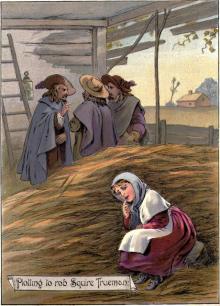 Goody Two-Shoes
Goody Two-Shoes The Pearl Box
The Pearl Box And when you gone...
And when you gone... Stranger At The Other Corner
Stranger At The Other Corner My Young Days
My Young Days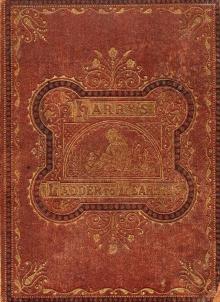 Harry's Ladder to Learning
Harry's Ladder to Learning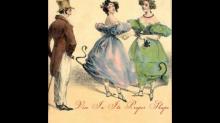 Vice in its Proper Shape
Vice in its Proper Shape_preview.jpg) Promise (the curse)
Promise (the curse)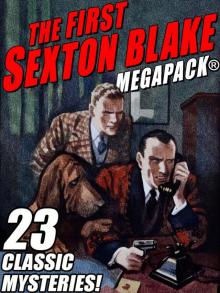 The First Sexton Blake
The First Sexton Blake Golden Moments
Golden Moments Hildebrand; or, The Days of Queen Elizabeth, An Historic Romance, Vol. 2 of 3
Hildebrand; or, The Days of Queen Elizabeth, An Historic Romance, Vol. 2 of 3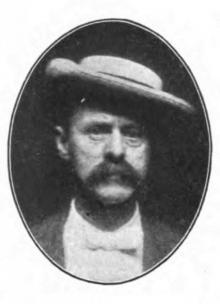 The Ice Queen
The Ice Queen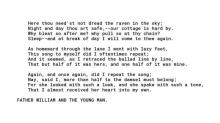 Phebe, the Blackberry Girl
Phebe, the Blackberry Girl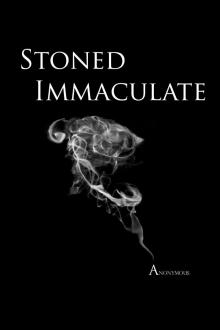 Stoned Immaculate
Stoned Immaculate Hildebrand; or, The Days of Queen Elizabeth, An Historic Romance, Vol. 3 of 3
Hildebrand; or, The Days of Queen Elizabeth, An Historic Romance, Vol. 3 of 3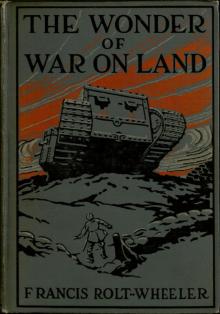 The Wonder of War on Land
The Wonder of War on Land Breaking Bailey
Breaking Bailey The Little Girl Who Was Taught by Experience
The Little Girl Who Was Taught by Experience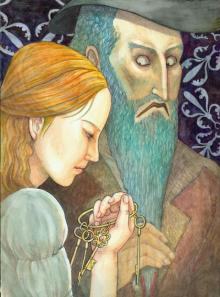 The Popular Story of Blue Beard
The Popular Story of Blue Beard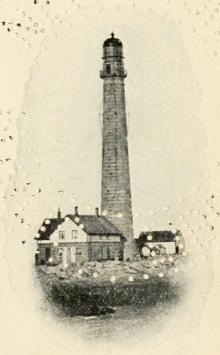 The Life Savers: A story of the United States life-saving service
The Life Savers: A story of the United States life-saving service Eunuchs and Nymphomaniacs
Eunuchs and Nymphomaniacs Hildebrand; or, The Days of Queen Elizabeth, An Historic Romance, Vol. 1 of 3
Hildebrand; or, The Days of Queen Elizabeth, An Historic Romance, Vol. 1 of 3 Kitty's Picnic, and Other Stories
Kitty's Picnic, and Other Stories Two Yellow-Birds
Two Yellow-Birds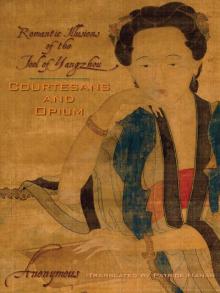 Courtesans and Opium
Courtesans and Opium The Emigrant's Lost Son; or, Life Alone in the Forest
The Emigrant's Lost Son; or, Life Alone in the Forest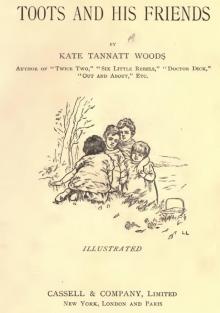 Toots and His Friends
Toots and His Friends Fast Nine; or, A Challenge from Fairfield
Fast Nine; or, A Challenge from Fairfield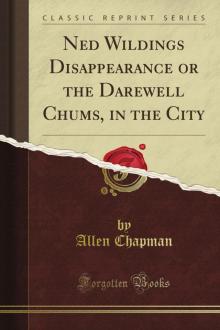 Ned Wilding's Disappearance; or, The Darewell Chums in the City
Ned Wilding's Disappearance; or, The Darewell Chums in the City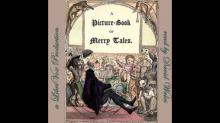 A Picture-book of Merry Tales
A Picture-book of Merry Tales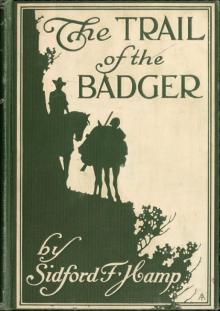 The Trail of The Badger: A Story of the Colorado Border Thirty Years Ago
The Trail of The Badger: A Story of the Colorado Border Thirty Years Ago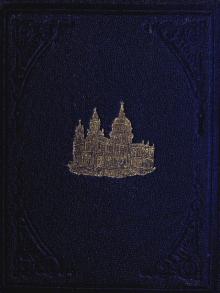 Peter Parley's Visit to London, During the Coronation of Queen Victoria
Peter Parley's Visit to London, During the Coronation of Queen Victoria The Rainbow, After the Thunder-Storm
The Rainbow, After the Thunder-Storm Arthur Hamilton, and His Dog
Arthur Hamilton, and His Dog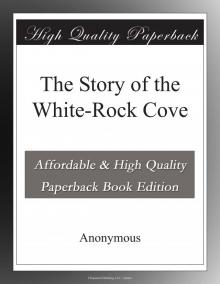 The Story of the White-Rock Cove
The Story of the White-Rock Cove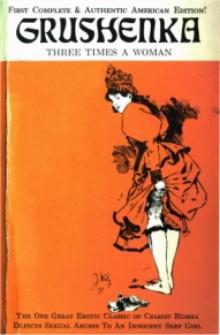 Grushenka. Three Times a Woman
Grushenka. Three Times a Woman Adventures of a Squirrel, Supposed to be Related by Himself
Adventures of a Squirrel, Supposed to be Related by Himself Falling in Love...Again
Falling in Love...Again The Colossal Camera Calamity
The Colossal Camera Calamity Child of the Regiment
Child of the Regiment Elimination Night
Elimination Night The Kingfisher Secret
The Kingfisher Secret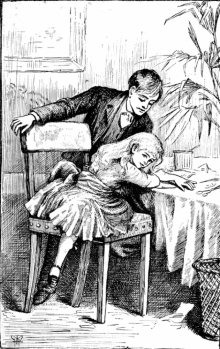 Left to Ourselves; or, John Headley's Promise.
Left to Ourselves; or, John Headley's Promise. The Island of Gold: A Sailor's Yarn
The Island of Gold: A Sailor's Yarn Adventures of Bobby Orde
Adventures of Bobby Orde Twain, Mark: Selected Obituaries
Twain, Mark: Selected Obituaries When Love Goes Bad
When Love Goes Bad The Incest Diary
The Incest Diary Calling Maggie May
Calling Maggie May The Infidelity Diaries
The Infidelity Diaries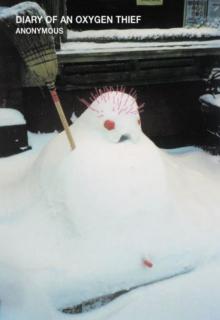 Diary of an Oxygen Thief (The Oxygen Thief Diaries)
Diary of an Oxygen Thief (The Oxygen Thief Diaries) ARABELLA
ARABELLA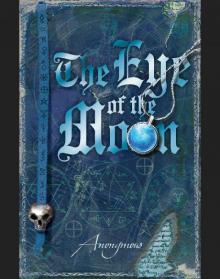 The Eye of the Moon
The Eye of the Moon Dara
Dara THE ALTAR OF VENUS: The Making of a Victorian Rake
THE ALTAR OF VENUS: The Making of a Victorian Rake The Book of Death
The Book of Death The Book of David
The Book of David The Devil's Graveyard
The Devil's Graveyard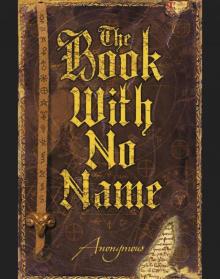 The Book With No Name
The Book With No Name I Am A Lesbian
I Am A Lesbian Njal's Saga
Njal's Saga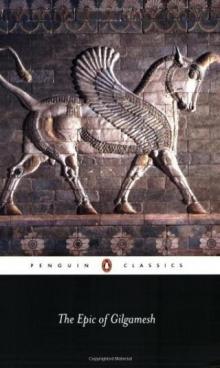 The Epic of Gilgamesh
The Epic of Gilgamesh Darling
Darling Tal, a conversation with an alien
Tal, a conversation with an alien Go Ask Alice
Go Ask Alice Aphrodizzia
Aphrodizzia The Campus Trilogy
The Campus Trilogy Augustus and Lady Maude
Augustus and Lady Maude Lucy in the Sky
Lucy in the Sky Sight Unseen
Sight Unseen Pleasures and Follies
Pleasures and Follies The Red Mohawk
The Red Mohawk A Fucked Up Life in Books
A Fucked Up Life in Books Chameleon On a Kaleidoscope (The Oxygen Thief Diaries)
Chameleon On a Kaleidoscope (The Oxygen Thief Diaries) Astrid Cane
Astrid Cane BEATRICE
BEATRICE The Song of the Cid
The Song of the Cid